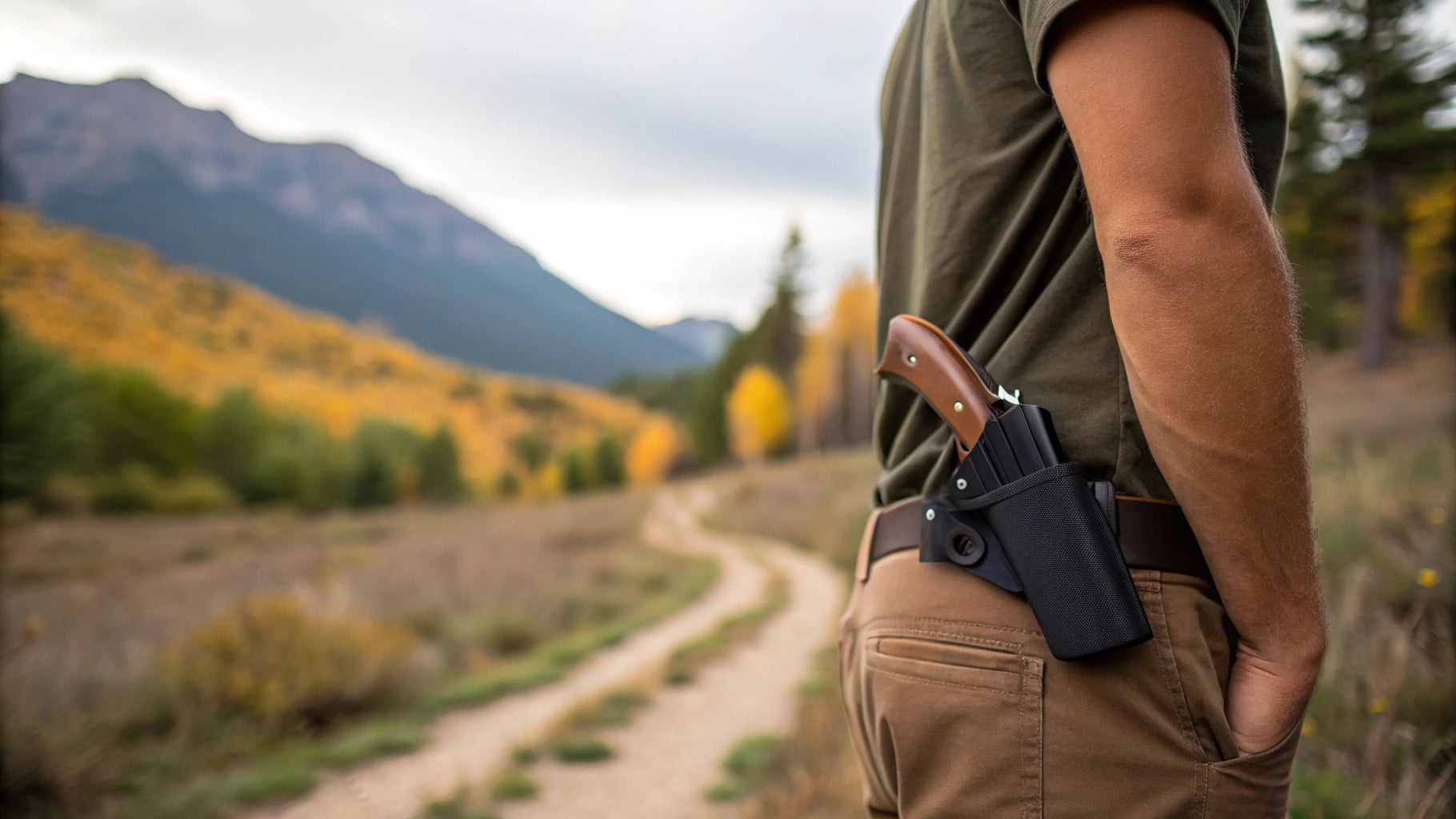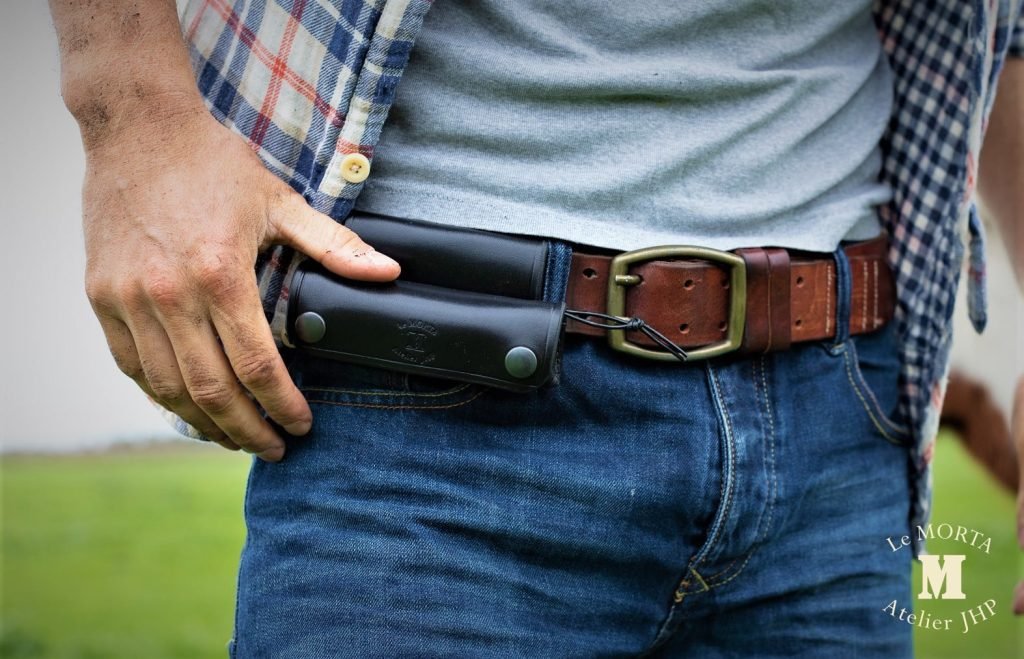Can you carry a knife in Colorado? In Colorado, you can carry a knife openly or concealed if the blade is 3.5 inches or shorter. Longer blades are generally illegal to carry concealed, except for hunting, fishing, or work purposes. Switchblades and ballistic knives are prohibited. Local laws may impose stricter rules.
Navigating Colorado’s knife laws can be tricky, and making assumptions could lead to unwanted legal trouble. Imagine having the right tool for your adventure, only to find out it’s against the law. It’s more than just knowing if you can; it’s about knowing what you can.
Dive into this guide to ensure your peace of mind and stay on the right side of the law. Your next adventure depends on it.

Credit: www.tektoknives.com
Can You Carry a Knife in Colorado?
Knife Laws In Colorado
Understanding knife laws in Colorado is essential whether you’re a resident or just visiting. Colorado has specific regulations regarding the types of knives you can carry and where you can carry them. Ignorance of these laws can lead to misunderstandings or even legal trouble, so it’s crucial to know your rights and responsibilities.
Types Of Knives You Can Legally Carry
In Colorado, most knives are legal to carry, but there are some restrictions. You are allowed to carry a pocket knife with a blade of less than 3.5 inches. Many people in Colorado carry pocket knives for practical purposes like hiking or camping. However, carrying a switchblade or a ballistic knife is illegal, regardless of the blade length.
Open Vs. Concealed Carry
The way you carry your knife can affect its legality. Open carry is generally allowed for most knives, meaning you can visibly carry them on your person. Concealed carry, however, requires the knife to be less than 3.5 inches in blade length. A friend of mine learned this the hard way when he was stopped during a routine check and had to explain why his larger knife was concealed.
Knife Restrictions In Specific Locations
Even if your knife is legal, certain places have restrictions. Schools, government buildings, and airports have strict no-knife policies. Before entering these areas, ensure your knife is securely stored elsewhere. Ever tried to enter a concert venue with a knife? You’ll likely be turned away at the door.
Understanding The Legal Implications
Carrying a knife in Colorado comes with legal responsibilities. If you’re caught violating these laws, you could face fines or even jail time. Would you want your outdoor adventure to turn into a legal nightmare? Always double-check local rules, as they can vary by city or county.
Colorado’s knife laws are relatively lenient, yet understanding them is crucial for anyone carrying a knife. Why risk a legal issue when a little knowledge can keep you safe? Stay informed and enjoy all that Colorado has to offer without worry.

Credit: www.shouselaw.com
Types Of Knives Permitted
When you’re in Colorado, you might wonder what types of knives are legally allowed. Whether you’re a local resident or just visiting, it’s crucial to understand the specifics of knife laws in the state. Knowing what’s permitted can help you avoid any legal issues while ensuring you’re equipped for outdoor adventures or everyday tasks.
Pocket Knives
Pocket knives are generally permitted in Colorado. These small, foldable tools are handy for various tasks, from cutting ropes to peeling fruit. However, there are restrictions on blade length that you should be aware of. Typically, a blade under 3.5 inches is considered safe to carry.
Fixed-blade Knives
Fixed-blade knives, often used for camping and hunting, are also allowed. These knives don’t fold, offering more durability and strength for tougher jobs. While they are legal, carrying them openly can sometimes attract attention. Would you feel comfortable having one in your backpack?
Butterfly Knives
Butterfly knives, known for their unique flipping action, are legal in Colorado. Many enthusiasts love the challenge they present in mastering tricks. However, because of their design, they can be mistaken for weapons. Ensure you handle them responsibly to avoid misunderstandings.
Switchblades
Switchblades, also called automatic knives, have a complicated legal standing. While some states ban them outright, Colorado permits them, but with restrictions. Ensure the blade is no longer than 3.5 inches to comply with state laws. Would you choose one for its convenience?
Understanding the types of knives permitted in Colorado can save you from potential legal hassles. Whether you’re a hobbyist or simply need a tool for daily use, ensure your knife choice aligns with state regulations. This way, you can focus on enjoying your time in Colorado without worry.
Restrictions And Prohibited Areas
Colorado’s laws on carrying knives can be complex, especially when considering the restrictions and prohibited areas. If you’re planning to carry a knife in the state, it’s crucial to know where you can legally take it and where you can’t. Understanding these rules can help you avoid unnecessary legal trouble and ensure your safety and the safety of those around you.
Restrictions On Blade Length And Type
In Colorado, blade length is a significant factor when it comes to carrying knives. Generally, blades longer than 3.5 inches are considered illegal to carry openly without specific permits. This means if your knife exceeds this length, you must have a concealed carry permit or face potential penalties.
Additionally, certain types of knives are restricted. Switchblades and ballistic knives are prohibited statewide. If you’re an avid knife enthusiast, be sure to check whether your collection includes these types to avoid breaking the law.
Prohibited Areas For Carrying Knives
There are specific areas in Colorado where carrying any knife, regardless of its length or type, is strictly prohibited. Schools are one such area where carrying knives is banned to ensure student safety. This includes not only public schools but also private educational institutions.
Government buildings and courthouses also enforce strict no-knife policies. Even if you’re visiting for a brief errand, carrying a knife in these places can lead to legal consequences. Always check signage and local regulations when entering such facilities.
Exceptions And Permits
While restrictions are in place, there are exceptions where carrying certain knives might be permissible. For example, individuals who use knives for work-related purposes may qualify for exemptions. If your job requires a knife, consider applying for a special permit or license.
Concealed carry permits offer another avenue for legally carrying a knife. These permits may allow you to carry longer blades or specific types of knives. However, obtaining a permit involves a thorough background check and adherence to local rules.
Personal Insights: Navigating Knife Laws
Imagine heading out for a hiking trip, feeling confident with your trusty knife in tow, only to realize you’re entering a prohibited area. It’s easy to make such mistakes if you’re not aware of the local laws. Always research your destination’s knife regulations before embarking on your adventure.
Have you ever considered how these laws impact your daily routine? From home to office, knowing where you can carry a knife safely ensures peace of mind. What steps will you take today to stay informed and compliant with local laws?
Penalties For Violations
Carrying a knife in Colorado can lead to penalties if laws are violated. Fines or imprisonment may be imposed, depending on the severity of the offense. Always check local laws to ensure compliance and avoid legal consequences.
Navigating the legal landscape of carrying a knife in Colorado can be tricky. Understanding the penalties for violations is crucial if you want to stay on the right side of the law. Whether you’re a local or just visiting, knowing what could happen if you break knife laws is essential for peace of mind.
Consequences Of Violating Knife Laws
Breaking knife laws in Colorado can lead to serious repercussions. You might face fines, community service, or even jail time. The severity of the penalty often depends on the type of knife and the intent behind carrying it.
Types Of Penalties You Could Face
Colorado classifies knife law violations as misdemeanors or felonies. A misdemeanor might result in a fine or a short stint in jail. Felonies, however, can mean longer prison sentences and larger fines.
Impact On Your Record
A conviction could leave a lasting mark on your criminal record. This might affect job opportunities or your ability to rent housing. It’s a price you don’t want to pay for a momentary lapse in judgment.
Legal Exceptions And Defenses
There are exceptions to these penalties. For example, carrying a knife for work purposes might be permissible. Always consult legal advice if you find yourself in a gray area.
Real-life Consequences
Imagine planning a camping trip only to end up in legal trouble because of a knife in your gear. It’s a situation that could ruin your plans and lead to unexpected legal fees. A little awareness goes a long way in preventing such scenarios.
What Can You Do?
Stay informed about the local laws. Check the blade length restrictions and understand what types of knives are illegal. If you’re unsure, it’s always better to err on the side of caution.
Staying Safe And Legal
Always double-check the specific laws in your city or county. Colorado’s knife laws can vary, so what’s legal in one area might be illegal in another. Knowledge and caution are your best tools for avoiding penalties. Are you willing to risk the penalties for carrying that particular knife? Stay informed and make decisions that keep you safe and lawful.
Tips For Responsible Knife Carrying
Understanding Colorado knife laws is crucial for responsible carrying. State laws allow carrying knives if blade length is under four inches. Always check local regulations for restrictions.
Carrying a knife in Colorado can be a practical choice for outdoor enthusiasts, cooks, and collectors alike. However, it’s essential to do so responsibly to ensure safety and compliance with local laws. Whether you’re an avid hiker or just someone who likes to be prepared, understanding the nuances of responsible knife carrying can make your experience both safe and enjoyable.
Understand Colorado Knife Laws
Before you carry a knife, familiarize yourself with Colorado’s knife laws. Know which types of knives are legal and their size restrictions. This knowledge will help you avoid unintentional legal issues.
Choose The Right Knife For The Situation
Consider the setting in which you’ll be carrying your knife. A small folding knife might be perfect for day-to-day tasks, while a larger fixed blade might be better for camping. Picking the right knife ensures you are prepared without drawing unnecessary attention.
Maintain Your Knife Properly
Regular maintenance keeps your knife safe and functional. Sharpen the blade and check for any loose parts. A well-maintained knife is more reliable and less likely to cause accidents.
Practice Safe Handling
Always handle your knife with care. Use it only for its intended purposes and never engage in risky behaviors. Safe handling minimizes the risk of injury to yourself and others.
Be Mindful Of Your Surroundings
Always be aware of your environment when carrying a knife. Consider the people around you and the setting. You don’t want to make anyone uncomfortable or alarmed.
Communicate Clearly
If you’re with others and need to use your knife, communicate what you’re doing. This prevents misunderstandings and keeps everyone at ease. Clear communication is key to responsible knife use.
Reflect On Your Need
Ask yourself why you’re carrying a knife. Is it necessary for the activity you’re engaging in? Reflecting on your need helps ensure that you’re carrying a knife for the right reasons. Remember, responsible knife carrying is about more than just following the law. It’s about ensuring safety and being considerate of those around you. Have you ever found yourself in a situation where carrying a knife proved particularly useful or problematic? Reflecting on such experiences can offer valuable insights into how you approach knife carrying in the future.

Credit: www.battlbox.com
Frequently Asked Questions
Can I Carry A Knife In My Car In Colorado?
In Colorado, you can carry a knife in your car. Ensure it complies with state and local laws. Knives with blades longer than 3. 5 inches may face restrictions. Always check for any updates or local ordinances. Stay informed to avoid legal issues.
What Is The Legal Size Of A Pocket Knife To Carry?
Pocket knife legal size varies by location. In the U. S. , blades typically under 2. 5 to 4 inches are legal. Always check local laws for specific regulations to ensure compliance.
How Big Of A Knife Can You Have In A Carry-on?
Knives are not allowed in carry-on luggage. TSA strictly prohibits sharp objects in carry-on bags. All knives must be packed in checked luggage. Always check the latest regulations on the TSA website before traveling.
Conclusion
Understanding Colorado’s knife laws is crucial for safe travels. State laws allow carrying knives with blades under 3. 5 inches. Larger blades require careful consideration of local regulations. Always check city-specific rules to avoid trouble. Knowing these laws ensures peace of mind and legal compliance.
Remember, safety and respect for local laws are essential. Stay informed and travel responsibly with your knife. Be aware of restrictions in schools and government buildings. Knowing the law keeps you and others safe. Equip yourself with knowledge, not just your knife.
Related Article
- 6 Best Japanese Knife Set Under $200: Top Picks for Quality and Value
- Best Full Tang Bushcraft Knife: Top Picks for Wilderness Adventures
- Best Gutting And Skinning Knife: Top Picks for Effortless Game Processing
- Best Henckels Chef Knife: Unleash Culinary Precision with Top Picks
- Best Honesuki Knife: Unleash Precision in Your Kitchen with Expert Picks
Hi there, I’m Preppy Hartwell, but you can call me Preppy—the apron-clad foodie behind Preppy Kitchen Tips! I created Preppy Kitchen Tips because I’m convinced food has a way of telling stories that words can’t. So, grab a fork and dig in. The past never tasted so good!

